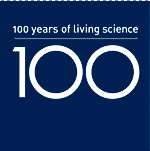Louis Badone
(Royal School of Mines, 1942 - 1945)
Shares his memories of being evacuated to the University of Swansea during World War II
At the outbreak of World War II Sir Harold Carpenter opted to evacuate the Royal School of Mines Metallurgy Department to University College Swansea, Wales, and share facilities with the Swansea Metallurgy Department. Thus the department became the only one to leave South Kensington. Educational Advantages would be closeness to metal producing areas, (iron, copper, nickel). Social advantages would be that the trout fishing was excellent and Professor Roosevelt Griffiths of Swansea and Sir Harold were fellow enthusiasts! Sadly shortly after the move, Sir Harold had a heart attack whilst fishing and passed away.
I joined Metallurgy in the fall of 1942. Professor C.W. Dannatt had taken over the RSM students and instruction was jointly with Swansea students. Classes were bi-lingual, (English and Welsh) and we got used to William Williams, Thomas Thomas, William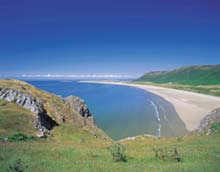 Thomas, Thomas Williams and other combinations amongst our classmates. RSM and Swansea soccer and rugby games were played on the sides of mountains and mainly an excuse for going to the pub after a game in the docks area. Other times we dispensed with the excuse! Bi-lingualism was promoted by such as Sospan Fach (Little Saucepan) and Eskimo Nell. The Swansea Union House in the Uplands area enabled us to add contact with Arts Course students and awareness of a drunken local poet named Dylan Thomas. It was also handy to the Uplands Hotel!
Thomas, Thomas Williams and other combinations amongst our classmates. RSM and Swansea soccer and rugby games were played on the sides of mountains and mainly an excuse for going to the pub after a game in the docks area. Other times we dispensed with the excuse! Bi-lingualism was promoted by such as Sospan Fach (Little Saucepan) and Eskimo Nell. The Swansea Union House in the Uplands area enabled us to add contact with Arts Course students and awareness of a drunken local poet named Dylan Thomas. It was also handy to the Uplands Hotel!
The Luftwaffe considerately bombed the gas works and thus spring afternoons were pleasantly spent looking over the sunlit sea at the Langland Bay Hotel. For a change we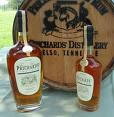 could walk the Gower Peninsula. My digs were next to the Black Pill Hotel looking out on a blacked out Swansea Bay. The hotel had been a busy “Road House” and had a long bar with shelves divided into well stocked sections devoted to various types of liquor. All seven of the RSM metallurgy students were on State Scholarships in an accelerated course to produce engineers for the war effort. Our grant cheques came in by session and their arrival was the occasion to concentrate on a section – Scotches, Rums and Gins.
could walk the Gower Peninsula. My digs were next to the Black Pill Hotel looking out on a blacked out Swansea Bay. The hotel had been a busy “Road House” and had a long bar with shelves divided into well stocked sections devoted to various types of liquor. All seven of the RSM metallurgy students were on State Scholarships in an accelerated course to produce engineers for the war effort. Our grant cheques came in by session and their arrival was the occasion to concentrate on a section – Scotches, Rums and Gins.
Professor Dannatt each week metamorphosed into Major Dannatt of the Swansea College 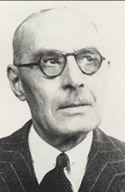 Home Guard unit. We were well trained in street fighting techniques for possible German raids on the active port. Ernie Yeoman, of the RSM teaching staff became a Lieutenant!
Home Guard unit. We were well trained in street fighting techniques for possible German raids on the active port. Ernie Yeoman, of the RSM teaching staff became a Lieutenant!
RSM Metallurgy returned to London for the autumn session of 1943. Monty Chapel added to our instruction by appearing over our shoulders as a titration went wrong and saying “He He – put it down the sink”. He also had tales of the Japanese Mint before World War I and getting in a storm in the borrowed Imperial yacht. It was so violent that things were thrown around the cabin and “broke the Emperor’s Piss Pot”. (Image on the left, Professor C.W. Dannatt).
The Union bar ably operated by Smith was conveniently just across the street and was well used by us. We had a one o'clock lecture with Professor Harold J. T. Ellingham on his work on the free energy diagrams for metal reduction systems. Eventually these paved the way for future smelting systems. He would leave the bar at 12.55 and it was a race to get to his lecture at the same time as him.
German bombing, V1 and V2 attacks enlivened our years back at Imperial. A V1 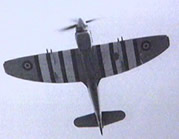 shattered the windows of the chemical lab prior to an exam. Before starting the glass had to be swept up and the windows made weather tight. We used the stock of used tracing cloth from engineering drawing exams that had produced the final marked blue prints. Ladders were found and the coated cloth nailed up to the window frames – after suitable decoration with India Ink compliments to RSM staff. Surprisingly the original carbon filament light bulbs at the lab benches still worked.
shattered the windows of the chemical lab prior to an exam. Before starting the glass had to be swept up and the windows made weather tight. We used the stock of used tracing cloth from engineering drawing exams that had produced the final marked blue prints. Ladders were found and the coated cloth nailed up to the window frames – after suitable decoration with India Ink compliments to RSM staff. Surprisingly the original carbon filament light bulbs at the lab benches still worked.
We graduated early in January 1945 but formal presentation of degrees was not until the autumn of 1946.
© 2007 Imperial College London
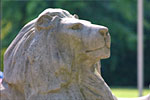
Through the first decade of the twenty-first century the campaign seeks to philanthropically raise £207 million from Imperial’s alumni, staff and friends, and donations from charitable foundations and industry.
Where your support can make a differenceGive now
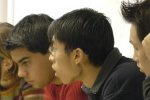
Imperial’s Centenary Year provides an opportunity to recognise and celebrate members of the Imperial community.
View staff and student portraits
